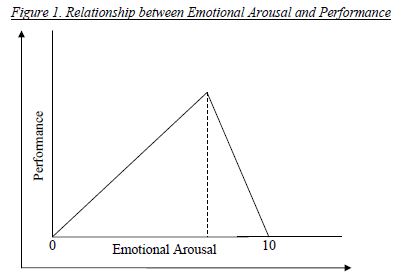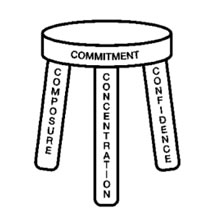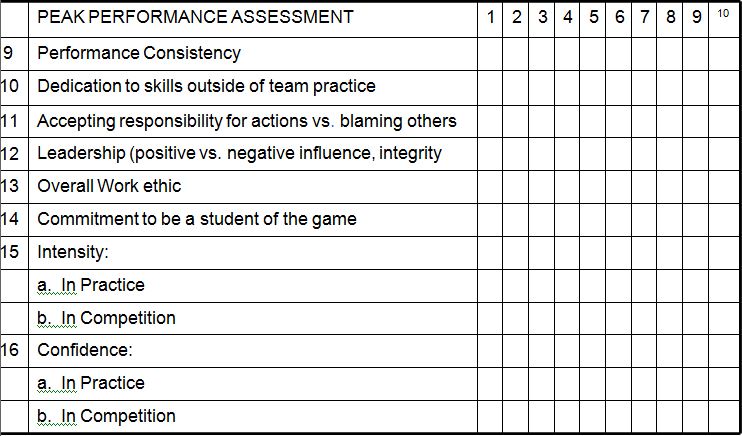Some thoughts on the mindset of a winner to share with your athletes. I hope you can find a few that are useful…
What makes one person a winner and other people losers? How they think! Your self image determines your ability and your success. You will be ready mentally if you are thinking success. For instance:
A WINNER is always ready to tackle something new… a loser is prone to believe it can’t be done.
A WINNER isn’t afraid of competition… losers excuse themselves with the idea that the competition can beat them.
A WINNER makes a mistake and says, “I was wrong”… a loser makes a mistake and says, “It wasn’t my fault,” and blames someone else.
A WINNER is challenged by a problem and goes through it.. a loser does not want to face it, tries to go around it, but never gets by it.
A WINNER realizes there is no time like the present to get a job done… a loser is prone to procrastinate with the hope that things will get better tomorrow.
A WINNER thinks positively, acts positively, and lives positively… a loser usually has a negative attitude and a negative approach to everything.
A WINNER says “Let’s find out…” a loser says, “Nobody knows.”
A WINNER makes commitments… a loser makes empty promises.
A WINNER says, “I’m good, but not as good as I should be…”· a loser says, “I’m not as bad as a lot of other people.”
A WINNER learns from those who are superior… a loser tries to tear down those who are superior.
A WINNER credits his “good luck” for winning-even though It isn’t good luck; a loser blames “bad luck” for losing-even though it isn’t bad luck.
A WINNER knows how and when to say “Yes” and “No”; a loser says, “Yes, but’ and “Perhaps not” at the wrong times, for the wrong reasons.
A WINNER Isn’t nearly as afraid of losing as a loser is secretly afraid of winning.
A WINNER works harder than a loser, and has more time; a loser Is always “Too busy” to do what is necessary.
A WINNER shows he’s sorry by making up for it, a loser says, “I’m sorry,” but does the some thing the next time.
A WINNER knows what to fight for, and what to compromise on; a loser compromises on what he shouldn’t and fights for what isn’t worthwhile fighting about.
A WINNER listens a loser just waits until it’s his turn to talk.
A WINNER, would rather be admired than liked, although he would prefer both; a loser would rather be liked than admired, and Is even willing to pay the price of mild contempt for It.
A WINNER feels strong enough to be gentle; a loser Is never gentle-he Is either weak or petty tyrannous by turns.
A WINNER feels responsible for more than his Job: a loser says, “I only work here.”
A WINNER says, “There ought to be a better way to do It,” a loser says, “That’s the way It’s always been done here.”
A WINNER paces himself; a loser has only two speeds: hysterical & lethargic.
A WINNER works hard to achieve his goals, a loser just gets by.
The Winner is always part of the answer; The Loser is always part of the problem.
The Winner always has a program; The Loser always has an excuse.
The Winner says,”Let me do it;” The Loser says;” That is not my job.”
The Winner sees an answer for every problem; The Loser sees a problem for every answer.
The Winner says,” It may be difficult but it is possible”; The Loser says,”It may be possible but it is too difficult.”
Winners have dreams; Loser have schemes.
Winners say,” I must do something”; Losers say,”Something must be done.”
Winners are a part of the team; Losers are apart from the team.
Winners see the gain; Losers see the pain.
Winners see possibilities; Losers see problems.
Winners believe in win/win; Losers believe for them to win someone has to lose.
Winners see the potential; Losers see the past.
Winners are like a thermostat; Losers are like thermometers.
Winners choose what they say; Losers say what they choose.
Winners use hard arguments but soft words; Losers use soft arguments but hard words.
Winners stand firm on values but compromise on petty things; Losers stand firm on petty things but compromise on values.
Winners follow the philosophy of empathy: “Don’t do to others what you would, not want them to do to you”;
Losers follow the philosophy, “Do it to others before they do it to you.”
Winners make it happen; Losers let it happen.
SO IF YOU, WANT TO BE A WINNER, THINK LIKE A WINNER… ACT LIKE A WINNER… AND SOONER THAN YOU THINK, YOU’LL BE A WINNER TOO!



